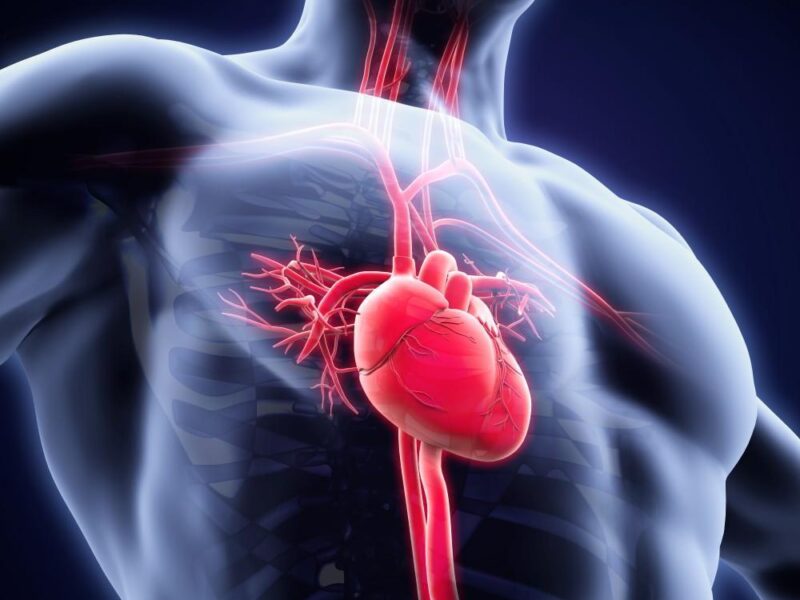Heart palpitations refer to the sensation of feeling your heartbeat. This sensation can manifest as fluttering, rapid, irregular, or pounding heartbeats.
While palpitations are often harmless and temporary, they can sometimes be indicative of an underlying medical condition or trigger significant anxiety or distress.
However, understanding the causes, symptoms, and potential treatments for heart palpitations is crucial for appropriate management and peace of mind.
Causes of Heart Palpitations
-
Physiological Factors:
- Stress and Anxiety: Emotional stress or anxiety can trigger the release of adrenaline, leading to palpitations.
- Physical Exertion: Intense exercise or strenuous physical activity can increase heart rate and cause palpitations.
- Caffeine and Stimulants: Consumption of caffeine, nicotine, or certain medications and supplements (e.g., decongestants, diet pills) can stimulate the heart and lead to palpitations.
-
Medical Conditions:
- Arrhythmias: Irregular heart rhythms, such as atrial fibrillation, supraventricular tachycardia (SVT), or ventricular tachycardia (VT), can cause palpitations.
- Heart Disease: Conditions such as coronary artery disease, heart valve disorders, or cardiomyopathy may lead to palpitations.
- Thyroid Disorders: Hyperthyroidism (overactive thyroid) can increase metabolism and heart rate, resulting in palpitations.
- Electrolyte Imbalance: Abnormal levels of potassium, magnesium, or calcium in the blood can affect heart rhythm and cause palpitations.
- Anemia: Low red blood cell count or haemoglobin levels can lead to inadequate oxygen delivery to tissues, triggering palpitations.
-
Other Triggers:
- Alcohol and Substance Abuse: Excessive alcohol consumption or drug use, including cocaine or amphetamines, can provoke palpitations.
- Dehydration: Inadequate fluid intake can lead to electrolyte imbalances and palpitations.
- Certain Medications: Some medications, such as asthma inhalers containing beta-agonists or certain antidepressants, may cause palpitations as a side effect.
Symptoms of Heart Palpitations:

- Sensation of fluttering, pounding, or racing heartbeat
- Awareness of skipped or irregular heartbeats
- Chest discomfort or pain
- Dizziness or lightheadedness
- Shortness of breath
- Sweating
- Fainting (syncope) in severe cases
Diagnosis and Treatment:
- Medical Evaluation: A thorough medical history, physical examination, and diagnostic tests (e.g., electrocardiogram, Holter monitor, echocardiogram) may be conducted to identify the underlying cause of palpitations.
- Management of Underlying Conditions: Treatment may involve addressing underlying medical conditions such as arrhythmias, heart disease, or thyroid disorders.
- Lifestyle Modifications: Strategies such as stress management, limiting caffeine and alcohol intake, staying hydrated, and maintaining a healthy diet and exercise regimen can help reduce palpitations.
- Medications: Depending on the underlying cause, medications such as beta-blockers, calcium channel blockers, or anti-arrhythmic drugs may be prescribed to regulate heart rhythm and control palpitations.
- Interventional Procedures: In some cases, procedures such as catheter ablation or implantation of a pacemaker or defibrillator may be recommended to manage certain arrhythmias.
In conclusion, Heart palpitations are a common phenomenon that can occur for various reasons, ranging from benign to potentially serious.
While occasional palpitations may not warrant immediate concern, persistent or severe symptoms. Prompt medical evaluation will rule out underlying cardiac conditions or other health issues.
Lastly, effective management of heart palpitations often involves a combination of lifestyle modifications, medical treatment, and addressing any underlying medical conditions to ensure optimal heart health and overall well-being.
Related Tags
Taiwo Olawuyi
Taiwo Olawuyi is a highly dedicated and passionate professional blogger, renowned for her ability to create captivating, informative, and engaging content in the realm of health and wellness. She holds a Bachelor's degree in Political Science from Olabisi Onabanjo University and a Master's degree in Adult Education from the prestigious University of Ibadan. Her profound passion for health and wellness, coupled with her unwavering dedication to her audience, serves as a constant source of inspiration and enlightenment for readers worldwide.










